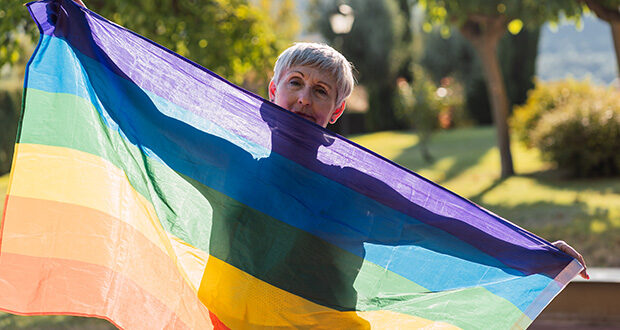Australia will hold a first-ever public consultation exclusively for the LGBTIQA+ community to identify the greatest disparities affecting access to healthcare.
Last Friday, a newly established expert advisory group for people who identify as lesbian, gay, bisexual, transgender, intersex, queer/questioning, and asexual (LGBTIQA+) held their first meeting.
The group was established after federal Labor pledged to drive long-term changes in health equity through a 10-year action plan.
"Today is a landmark day for the future of LGBTIQA+ health and wellbeing in Australia," Assistant Minister for Health and Aged Care Ged Kearney said.
"For a long time, the advocacy of the LGBTIQA+ community fell on deaf ears.
"They deserve a seat at the table when it comes to the unique health challenges they face."
In 2016, around 4,800 older partners aged 65 and over lived in same-sex relationships.
According to a Council on the Ageing (COTA) report, older LGBTIQA+ people often feel isolated and overlooked within the aged care sector and the broader community.
Older LGBTIQA+ people have often faced violence, stigma, and discrimination, which may lead to reluctance to reveal their identities or share personal stories with aged care services.
They may feel isolated and overlooked within the aged care sector and the broader community.
"Past fears and mistrust of these services have made LGBTIQA+ older people reluctant to use mainstream care, including aged care," the COTA report read.
"Encountering discrimination in the aged care environment can trigger anxiety and depression as it reminds them of past mistreatment."
Last week, the Western Australian government launched a new program to reduce loneliness and social isolation among older LGBTIQA+ people by connecting them with younger LGBTIQA+ volunteers.
WA Seniors and Ageing Minister Don Punch said older LGBTIQA+ people are often marginalised by service providers despite an increasing social acceptance of LGBTIQA+ people in Australia.
"We hope this program will build connection and understanding across generations, address loneliness and raise awareness of ageism," Mr Punch said.
"Establishing and upholding supportive, non-judgemental connections to the LGBTIQA+ community for older people is essential to maintain their mental health and wellbeing as they age."
People who identify as LGBTIQ+ face higher mental illness and distress rates due to community stigma, discrimination, and abuse. Less than half report feeling accepted when using healthcare services.
According to a La Trobe University report, over 30 per cent rated their health as poor or fair compared to 14 per cent of heterosexual Australians.
More than half of people identifying as LGBTIQA+ in Australia have reported living with one or more health conditions.
Last year, federal health minister Mark Butler announced a $26m investment in health research for LGBTIQA+ communities, along with a new national action plan.
The Health and Wellbeing 10-year national action plan will aim to tackle health disparities and implement sweeping changes throughout the healthcare system.
Chaired by Ms Kearney, the advisory group comprises seasoned experts in LGBTIQA+ health across Australia's mental health, aged care, and disability support sectors.
Members include La Trobe University Professor Adam Bourne, GLBTIQ Multicultural Council President Alexander Teh, GLBTI Rights in Ageing chief Kedy Kristal, Health Equity Matters chief Darryl O'Donnell and LGBTIQ+ Health Australia chief Nicky Bath.
Members will work with communities to co-design Australia's inaugural national plan with a dedicated focus on enhancing the health and well-being of LGBTIQA+ people.
During last week's meeting, the roundtable discussed challenges faced by the LGBTIQA+ community, which included research gaps and barriers to healthcare access.
The group unanimously agreed to conduct a public consultation with the LGBTIQA+ communities to identify priority issues and groups with complex needs.
LGBTIQ+ Health Australia (LHA) chief Nicky Bath said the 10-year plan would give the government 'a blueprint for change.'
"This action plan will save lives," Ms Bath said.
"For many years, the disparities in health and wellbeing outcomes have persisted or worsened.
"We hope the plan will become a foundation for improved policies, interventions and approaches to achieve equitable health and wellbeing outcomes."
Do you have an idea for a story?Email [email protected]
 Aged Care Insite Australia's number one aged care news source
Aged Care Insite Australia's number one aged care news source

